Village Stories – Rach & Dan
16/02/2021
A baptism of fire. That is how Whitney and Al look back on the period just after they had their beautiful twin girls, Milla and…
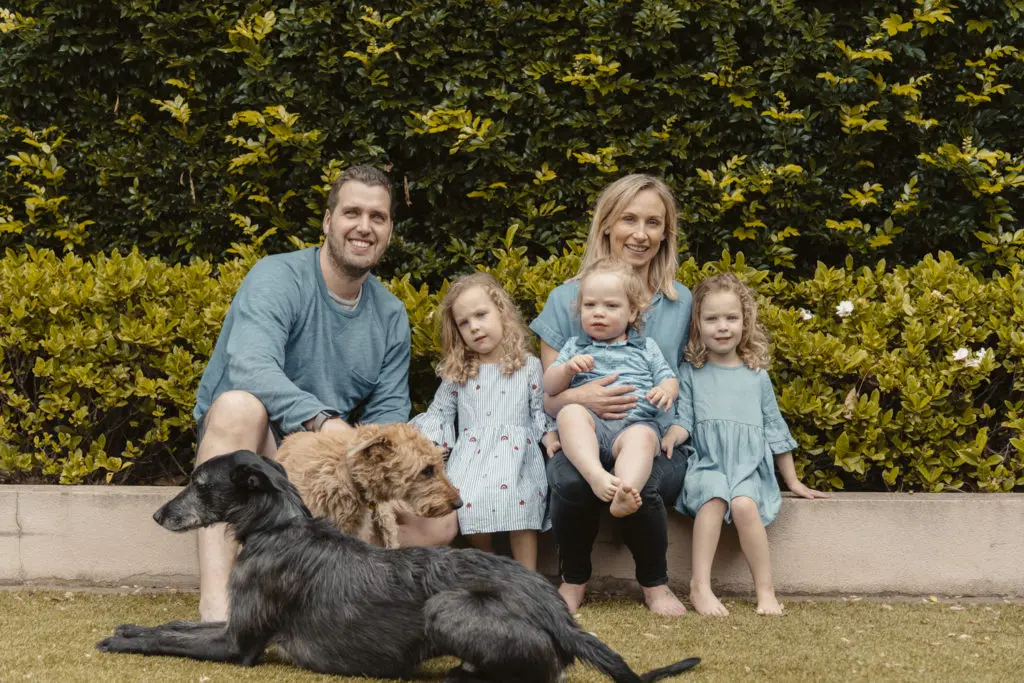
A baptism of fire. That is how Whitney and Al look back on the period just after they had their beautiful twin girls, Milla and Stevie. Sleepless nights became part of the course, all while Whitney was building her yoga empire and Al had moved into his large family business. Then, within a blink of an eye, their third was on the way. However, things didn’t exactly go to plan. With the birth of one adorable son, two surgeries and multiple blood transfusions later, Whitney and Al look back on how their friends and family helped them get through some of the worst weeks of their lives.
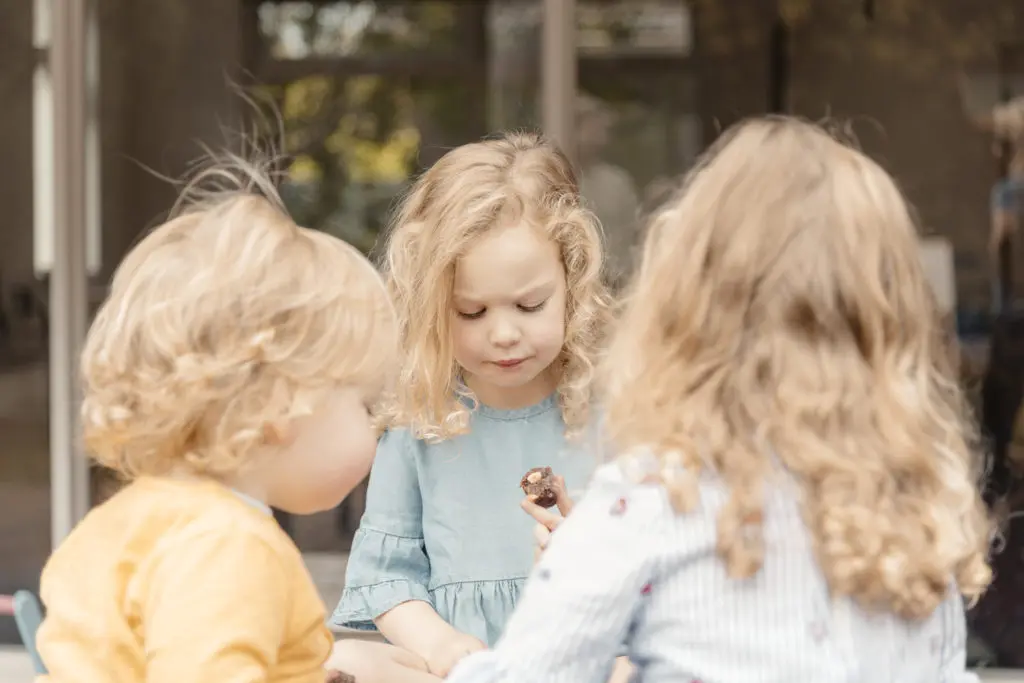
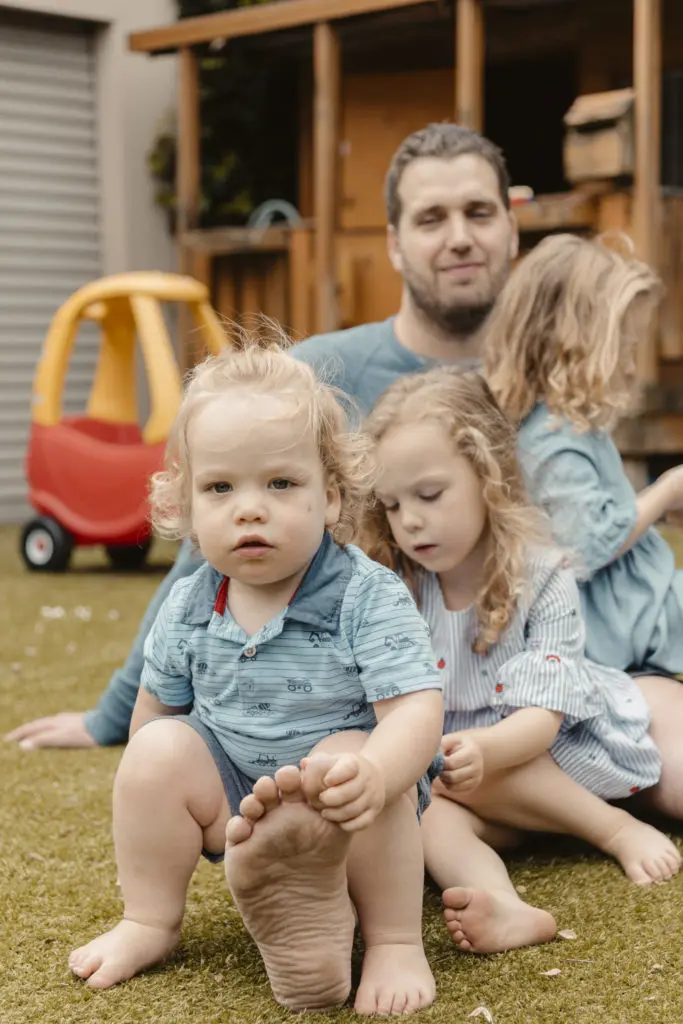
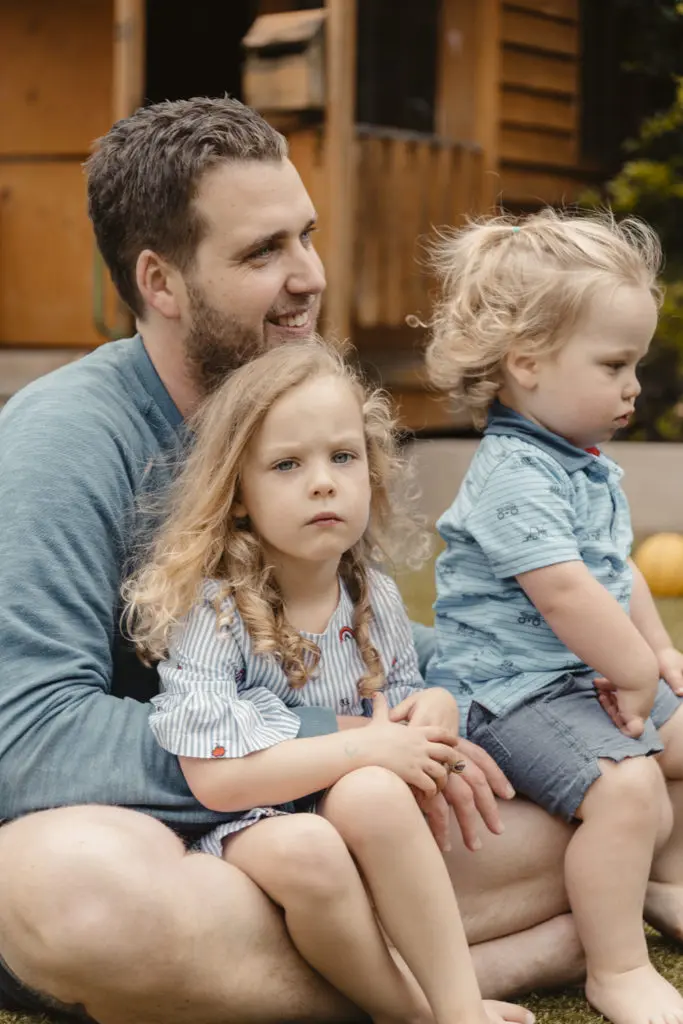
Who lives here?
Whitney, Al, Milla, Stevie, Shep and the dogs Clover and Jerry.
What does a typical day in the life of your family look like?
Whitney – I get up and go to the gym, [Al’s] on breakfast duty and gets everyone dressed for school and daycare. And then, I take the girls to kinder, he does daycare, and Al and I go to work. And then we come home, dinner, bath, bed.
Al – [I get home] after dinner, around 5.30-6. In time for cuddles in bed.
Whitney – [We do] a bit of reading, but not too much. Usually, we are all pretty cooked by that stage.
Can you tell us a bit about the journey that you have travelled over the last couple of years?
Whitney – These two (Milla and Stevie) were born in 2016. So having twins was a bit of a baptism of fire. It definitely turned our whole world upside down. It was a huge challenge for our relationship. You know, two babies is pretty full-on. And no sleep and all of that. We were living in Yarraville at the time. And then we moved into this house about two years ago. And then Shep was born 18-months ago.
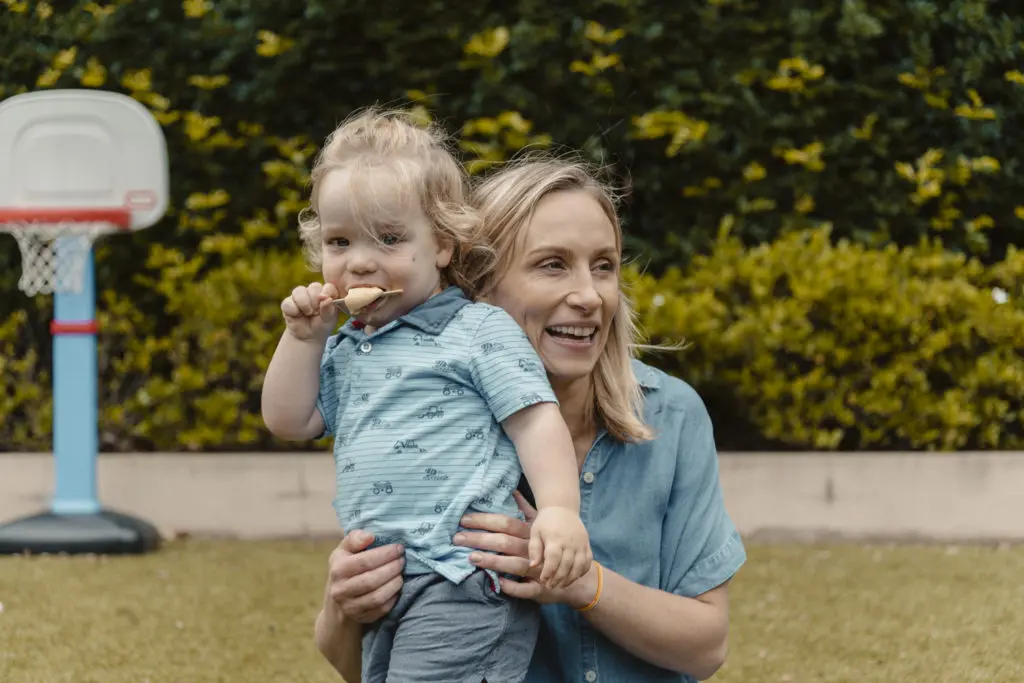
Who did you call on for help? Who was your village?
Whitney – Our parents have really been like a huge support, particularly since the girls were born. Having newborn twins was just so full on and my mum was over pretty much every day for the first year at least. Probably the first two years. So definitely our parents.
Al – [Pointing to Milla and Stevie sitting on his legs] Look two legs, two girls on them. Perfect! [Laughs] Our village was our friends. And Anne, the night nanny.
Whitney – She was a friggin’ godsend… Probably the biggest challenge for us over the past few years was when Shep was born. Everything was tracking fine except he was a bit overdue. And the whole thing with his pregnancy was he had a really big head and he wasn’t dropping down into my pelvis. So the obstetrician the whole time was like, “Well, we can induce you but it might go to emergency caesarean.” I didn’t want a caesar, but I was OK with it if that was what was best for the baby. So, I was induced and went into labour and everything was tracking fine but his head never engaged in my pelvis. And, so, it was just a long labour and epidurals weren’t working. Then a series of unfortunate things happened. My uterus ruptured which ended up [resulting] in an emergency hysterectomy. These sorts of things can end up in some pretty bad outcomes, obviously for the mum and the baby, but just because I was already on the operating table, already had a general anaesthetic, they were able to act really quickly and Shep was fine.
I was okay. I woke up in ICU later that night and you know the obstetrician was just like, “I hope you didn’t want any more kids.” I can laugh about it now but at the time you are like alright… Shep was put into special care even though he was actually fine, [it was] because I wasn’t fine. I didn’t get to see him until the next day. A hysterectomy really shouldn’t have been that much different to a caesarean in terms of recovery. Well, that is what the doctor said. So I was in the hospital for just a normal week. But during that time, I was in a lot of pain and I kept saying to doctors “I’m still in a lot of pain” and they were kind of like, “Have another endone.” I got home and that’s when it all really started to go pear-shaped. I was still in a lot of pain and we realized we were going to have to go back to the hospital. So we called an ambulance and went back to the hospital next morning.
Al – She was on the edge of consciousness.
Whitney – They had to take me down the stairs on a stretcher. I had blood clots and problems with my intestines from the surgery and then I had to have a second surgery, a lot of blood transfusions and all of that. I ended up being in the hospital for four more weeks. It was just so hard being away from [Al and the girls]. Al was trying to come to see me but obviously still had the girls to look after and we had a bit of family help, but everyone was stretched really thin. My mum was trying to support me in the hospital because AI had to be with the kids. Al ended up taking 12-weeks of carers leave. Shep was born at the end of August and it really wasn’t until Christmas that I started to feel a bit normal.
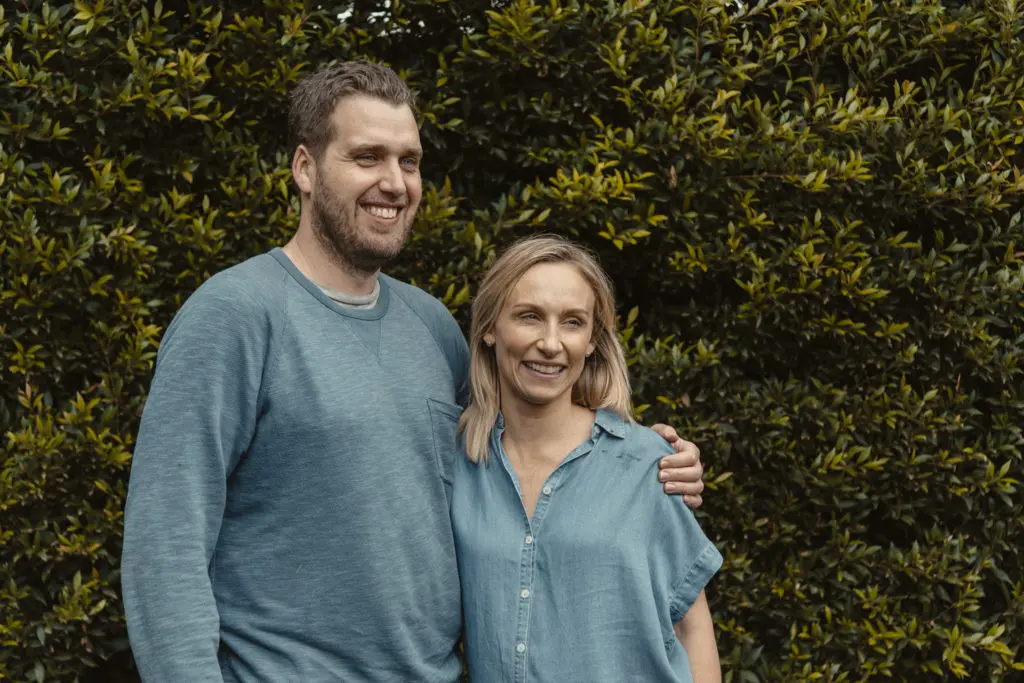
What about the night nanny? Did you bring her back?
Whitney – Yes we were trying to get her back a little bit. She did come back a couple times and helped us a little bit but we were kind of OK, taking care of the baby. And you know he was still in that newborn phase and he wasn’t hard. And we had one, not two, so that bit was actually a breeze. It was more just all the other things like who’s going to take care of the dogs and who’s going to cook food or clean the house or do all those other things because you know we had three kids under three and I was practically immobile for the better part of 12 weeks. It was just like, how do we get all this stuff happening?
Can you tell us about a time when your village was your lifeline or when someone did exactly what you needed?
Whitney – Sometimes you don’t know what you need and when you’re sick you don’t know what help to ask for. So it is amazing to have friends who just say, “This is what we’re going to do. We’re going to put some money towards getting the dogs walked, we’re going to put some money towards this meal service, we’re going to put some money towards the cleaner.” That sort of stuff is never not needed. And it’s amazing to be sitting there in the hospital and be like, “Wow people have really rallied and have thought about me and have come together.”
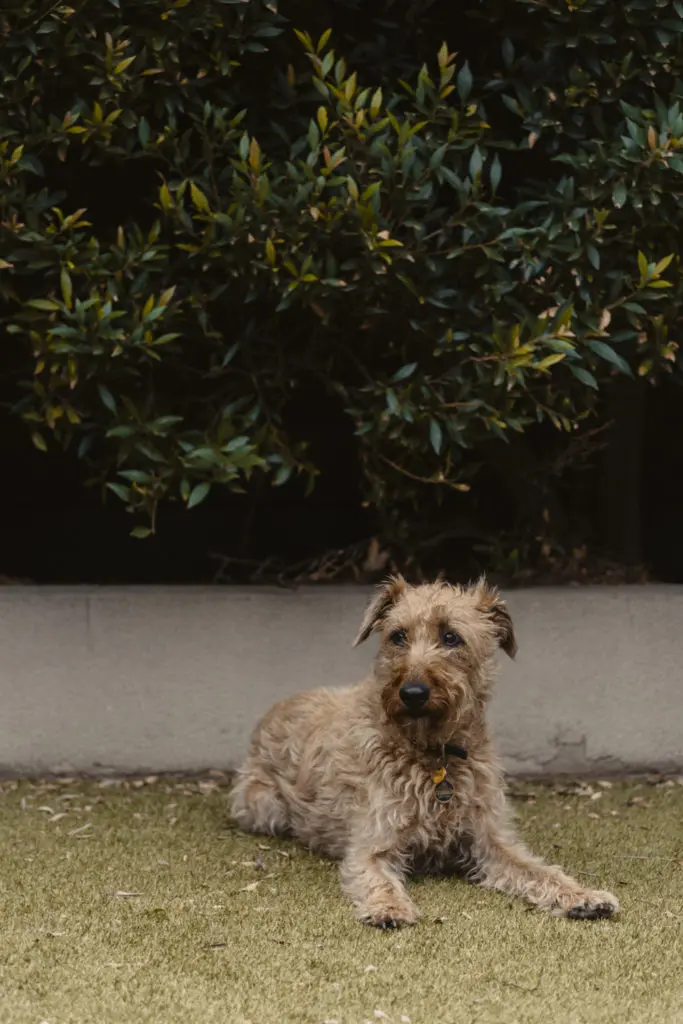
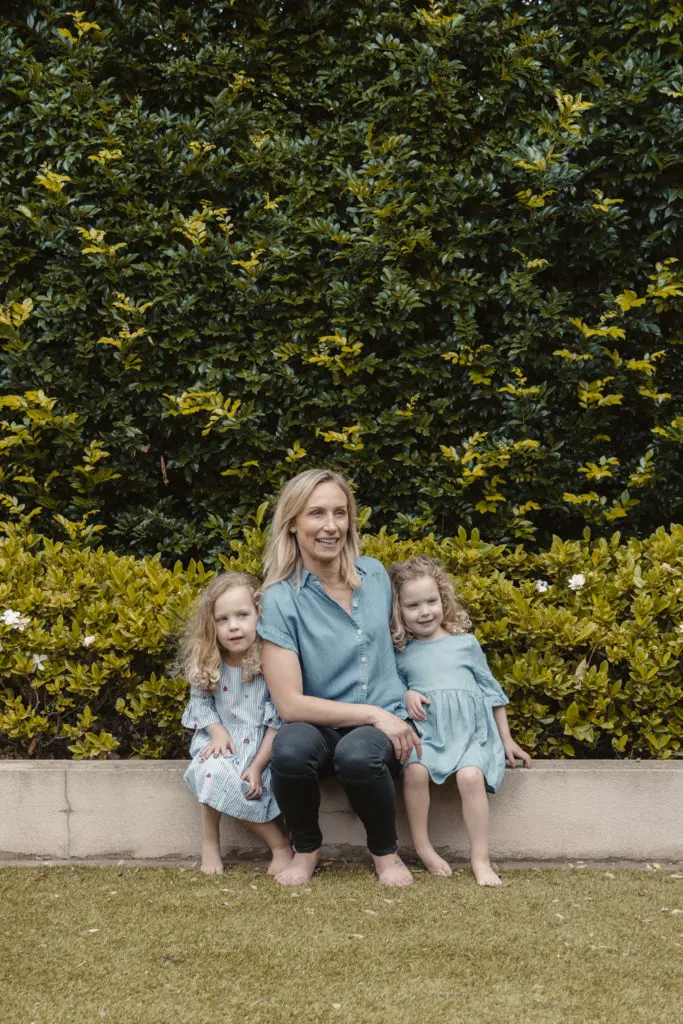
When things weren’t easy. Was there a moment that made you laugh or see the brighter side?
Whitney – I’m trying to think of a specific moment. Visits from friends and people stopping in and sending text messages and just checking-in. When I’m in [the middle of] a time and just overwhelmed and not sure what’s happening, I tend to withdraw a little bit. So to have a friend who keeps checking in, to be like “Hey still here? Hope you’re good?” is so beautiful.
What does a typical Sunday look like for you now?
Whitney – Sunday morning we do actually go out to breakfast. Which, whenever we get there, we kind of question why the frig we do it because the kids just run around and Al and I eat our cold breakfast. So it’s probably one we should just end… [laughs] You think to yourself, what was the point of this? Here’s a bunch of uneaten kids scrambled eggs and some cold coffee!